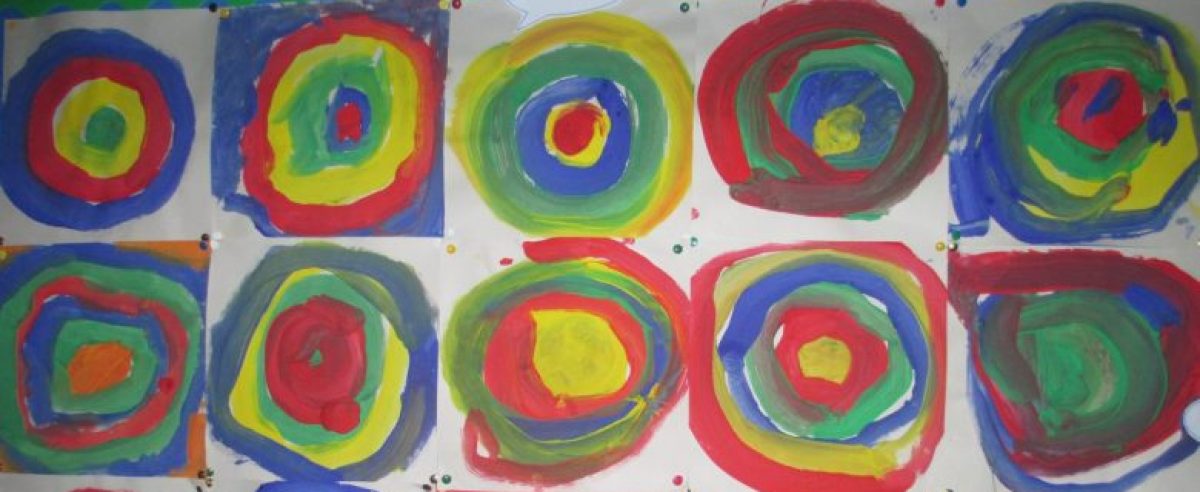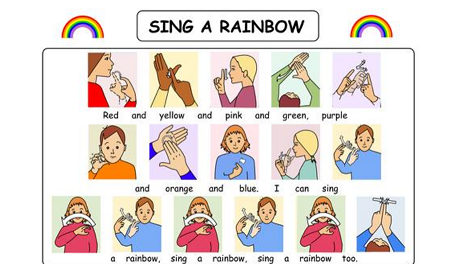Layla and her little sister have been helping their Mum to make a poster of thanks for lots of different groups of people. That is very thoughtful of you. Thank you for sharing your great work. 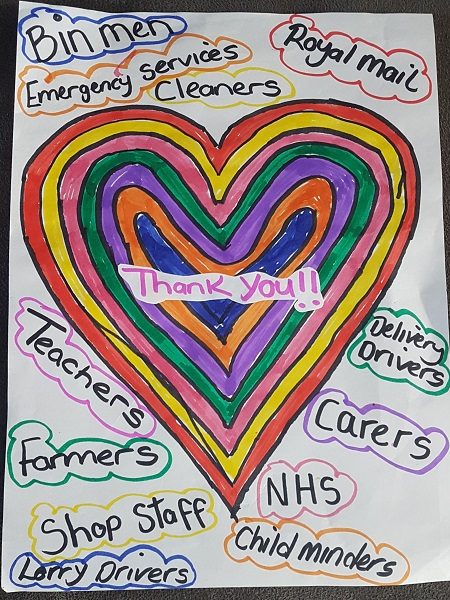
Tag: family
Developing Skills
Here’s a great little gallery of some super home learning. It’s certainly hard work helping to make bread but it looks like you made a great job of it. If only we could smell that bread as it looks delicious. Of course, you needed a tea break after all that hard work then it was on to plant potatoes with Daddy. Goodness, you have been very busy.
Thank you so much for sharing your developing skills at home. We would love to hear from other families about what they have been doing.
Free Resources
Senses Hunt
 We hope that everyone is enjoying spending time together as a family. To help the children think about their senses of sight, touch, sound, smell and taste, they could perhaps go on a senses hunt around the house as well as the garden if you have one?
We hope that everyone is enjoying spending time together as a family. To help the children think about their senses of sight, touch, sound, smell and taste, they could perhaps go on a senses hunt around the house as well as the garden if you have one?
Ask the children to help you write a list of what they are looking for before they set off and then see what they can find. Suggestions might be:
- something red
- something that makes a noise
- something rough/smooth
- something that has a smell
- something you can eat
- something long
- something soft
The children will no doubt come up with much more interesting and creative suggestions and it would be great to use their ideas, provided they are achievable of course. We would love to hear from you if anyone does this with their child.
I Can Sing A Rainbow
As part of our recent work on language and communication, the children have been learning “I Can Sing a Rainbow” using sign language so hopefully they will be able to show you what they have learned by singing along with this video. We have added a picture of the signs below to help you learn along with your child. Just like “Baby Shark”, this is another addictive song but it will undoubtedly put a smile on your faces.
Just refresh the blog page if you want to watch video again.
Learning At Home
Eileen, our Lifelong Learning Co-ordinator, has been in touch with an update. She said that the Peep group is continuing online which is great news.
Last week’s activity was about making a magic sounds box and one of our families has kindly shared photos from home of them doing their activity which looks super. An Easter book has also provided fun learning activities, such as matching pairs and cracking a code, which have been done without help from Mum or Dad so very well done to this little pupil.
We would love to hear what others have been doing so that we can share it on our blog. Click on the “Leave a comment” link to the left of this post or look at “How to add a comment” on the right, under Support Information, for simple instructions if you are unsure how to leave us a message.
Rhymes Together
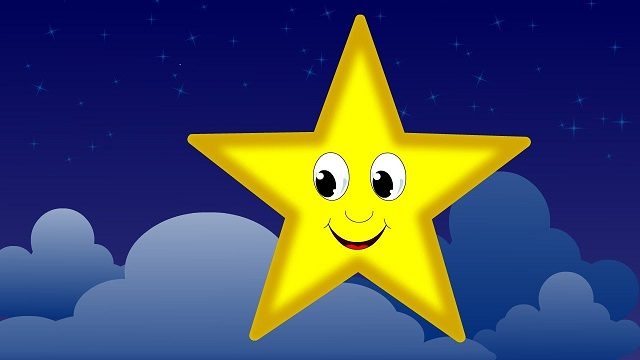 Rhymes are not only fun and engaging for young children but they can make a real difference to their language and literacy. Research suggests that children who have a good understanding of rhyme do better in literacy than children who have poor skills in this area.
Rhymes are not only fun and engaging for young children but they can make a real difference to their language and literacy. Research suggests that children who have a good understanding of rhyme do better in literacy than children who have poor skills in this area.
• The rhythm of nursery rhymes can help children’s listening skills – they are the foundations of the careful listening needed for developing clear speech.
• Rhyme helps children begin to recognise patterns in words and to discriminate between different sounds, for example ‘cat’ and ‘hat’, which are the skills needed in the future when sounding out words for reading.
• Many nursery rhymes and songs also have their own actions that can help to engage even those who struggle to listen and most children enjoy the combination of music and actions. Actions encourage them to take part, engaging them in repetitive songs and rhymes, which in turn support their language development.
• Finally, singing and rhyming is a wonderful way for families to bond with your children. Music is proven to help reduce stress levels and spending just a few minutes a day sharing a song or rhyme together can have a positive impact on everyone’s mental health.
This unprecedented closure of nurseries and schools is an opportunity to have fun with your children, learning lots of different nursery rhymes which will not only be a wonderful experience to share but will also benefit their development for the future. We will put a “Nursery Rhyme of the Week” on our blog during the times that the children would normally have been in Nursery as a suggestion, but the more rhymes they enjoy, the better.
We suggest starting with “Twinkle Twinkle Little Star” as most children are familiar with it and should be able to join in with the words and actions. We will be listening hard for Hecklegirth Nursery children singing “Twinkle Twinkle” all over the town.
Precious Time
It was lovely to hear from Tilly’s family:
“Absolutely love your last 2 comments (on “Learning is Fun” post below), couldn’t have put it better myself! It certainly is precious time and we are going to use it wisely. Stay safe Mrs Carruthers x”
We really appreciate you getting in touch and hope that you are all staying safe and healthy. We would love to hear from more of our families about what they have been doing as we miss them all.
Learning Is Fun
We hope that you are all staying safe and healthy at home. We would like to share some suggestions of activities you may like to do with your children.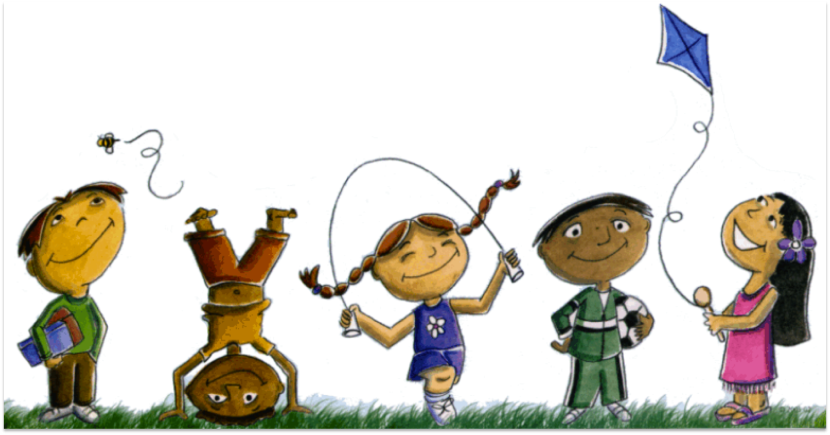 • Look at books with your family.
• Look at books with your family.
• Sing songs and dance.
• Help tidy away your toys.
• Set the table, counting out the plates and cutlery.
• Help write shopping lists and find the items in the shop.
• Discuss the ingredients that will be used for meal preparation and help to make a meal.
• Bake some cakes.
• Help to weed the garden.
• Play games and practise listening and taking turns.
• Build dens.
• Dress up.
• Let your imagination run wild!! Children are great at creating their own fun and games.
• Most importantly play and have fun, spending time with your loved ones.
• Children learn from everything they do and can gain so much from the interactions they have with the people around them. Make the most of this precious time with your little ones.
Tips
When things change or don’t go to plan, as in our current situation, young children can often feel confused, worried, scared or unsure. It is important to discuss issues with children when they are young to ensure that they can have the best chance of understanding a situation, what will or may happen and how to deal with it.
We know that families know best how to support individual children but thought that we would share some top tips, based on advice from the National Day Nurseries Association’s Early Years Advisers, for supporting these difficult conversations with your children to help ease any worry or stress.
• Be open and honest in terms your child will understand.
• Use stories available online or make up your own about difficult things. Include puppets and props where appropriate.
• Give children opportunities to ask question and offer them lots of reassurance.
• Use play and role modelling to help understanding and provide reassurance.
We hope that this may help some of our families.
